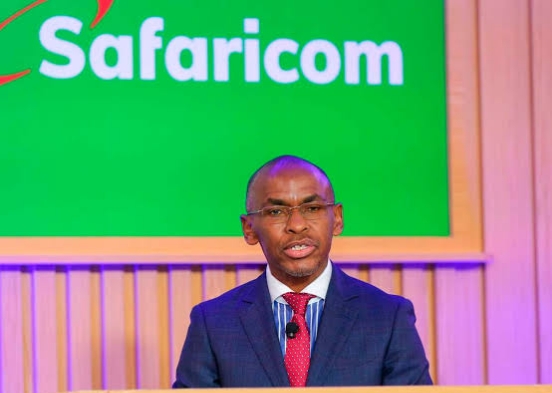Safaricom, Kenya’s largest telecommunications provider, has been a cornerstone of the country’s digital revolution.
However, in recent years, the company has faced mounting criticism from its once-loyal customer base.
Complaints about unfair practices, inefficiencies, and monopolistic tendencies have left many Kenyans disillusioned.
One of the primary grievances involves privacy concerns. Allegations have surfaced claiming Safaricom shares customers’ data with third parties, including government agencies, without proper consent.

Safaricom CEO Peter Ndegwa. Photo: Citizen TV Kenya Source: Facebook
While the company denies these accusations, assuring compliance with data protection laws, the perception of compromised privacy has damaged its reputation.
Another issue is the persistent complaints about billing inconsistencies. Customers frequently report mysterious airtime deductions, overly expensive data bundles, and lack of transparency in their charges.
Safaricom’s customer service, once praised, is now widely criticised for its slow response times and failure to resolve these issues satisfactorily.
The financial burden of using Safaricom’s services has also become a pressing concern, especially after the implementation of the Finance Act 2024.

Safaricom CEO Peter Ndegwa. Photo: Safaricom Source: Facebook
With increased taxes on mobile money transactions, many Kenyans feel that Safaricom, as the leading mobile money provider, benefits at their expense.
For a service that is essential for millions of unbanked individuals, these higher costs have made basic transactions more difficult for low-income households.
Despite its past accolades for innovation, Safaricom’s growing monopoly has stifled competition, leaving customers with limited alternatives.
Many now feel trapped, compelled to rely on a provider that seems to prioritise profits over fairness and service quality.
For Safaricom to reclaim its position as a trusted partner to Kenyans, significant reforms are needed. Transparency, improved service delivery, and a renewed focus on consumer protection could help rebuild the trust it has lost.
Until then, the perception of Safaricom as the “worst option” will persist.



